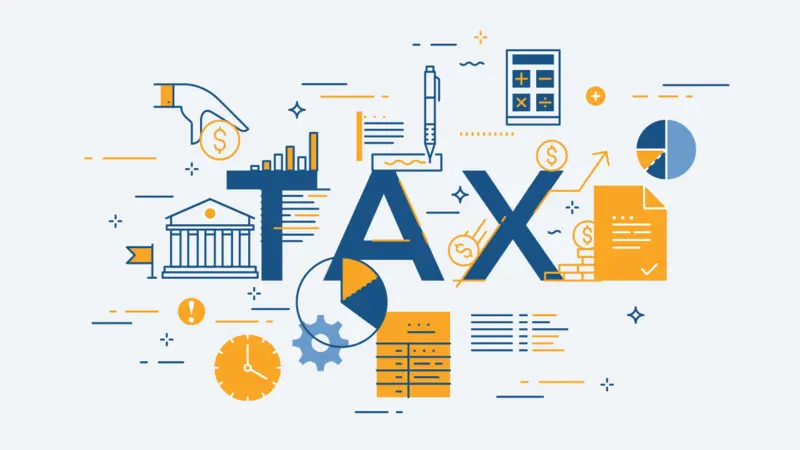Running a sole proprietorship means managing every facet of your business, including the daunting task of tax reporting. Sole proprietors face unique tax responsibilities but with careful planning and organization, reporting can be simplified, ensuring compliance and potentially reducing the tax burden. This article provides guidance to sole proprietors on navigating the complexities of business tax reporting.

Understanding Sole Proprietorship Taxation
A sole proprietorship is an unincorporated business owned and run by one individual, with no distinction between the business and owner. Therefore, the IRS treats the business's income as the owner's personal income. Tax reporting for sole proprietors includes income from sales, the cost of goods sold, deductions for business expenses, and self-employment taxes.
Reporting Business Income
Sole proprietors report their business income and expenses on Schedule C (Form 1040 or 1040-SR), which details profits and losses. Income reported should match the revenue figures recorded in your accounting journals and ledgers throughout the year.
Deductible Business Expenses
Many expenses incurred in the operation of your business are tax-deductible. Common deductions include:
- Home office expenses
- Business travel and meal expenses
- Advertising and marketing costs
- Supplies and materials
- Depreciation on business assets
- Professional fees (legal, accounting, etc.)
Self-Employment Taxes
Sole proprietors must pay self-employment taxes (Social Security and Medicare), which is similar to the FICA tax paid by employers and employees. This is reported on Schedule SE (Form 1040). You can also deduct half of your self-employment tax from your net income.
Quarterly Estimated Taxes
If you expect to owe more than $1,000 in taxes for the year, you must make quarterly estimated tax payments to cover income tax and self-employment taxes. Use Form 1040-ES to calculate and pay these estimated taxes.
Strategies for Simplified Tax Reporting
1. Maintain Meticulous Records: Keep detailed records of all your income and expenses. Use accounting software tailored for small businesses to track financial transactions and simplify reporting.
2. Separate Business and Personal Finances: Open a separate bank account for your business to streamline financial tracking and make it easier to distinguish business transactions from personal ones.
3. Plan for Deductions: Keep receipts and documentation for all business-related expenses. Plan and time purchases of supplies or equipment to maximize deductions.
4. Understand Home Office Deductions: If you use part of your home exclusively for business, calculate your home office deduction carefully, based on square footage or actual expenses.
5. Stay Updated on Tax Law Changes: Tax laws affecting deductions and credits change frequently, so stay informed to ensure you're taking advantage of current tax benefits.
6. Utilize Tax Preparation Resources: Consider using online tax preparation tools designed for small businesses or independent contractors. These can help navigate sole proprietorship-specific tax reporting.
7. Seek Professional Advice: If the complexities of business taxes are overwhelming, employ a certified public accountant (CPA) or a tax professional who specializes in small businesses. They can provide advice, keep you compliant with tax laws, and often identify additional tax savings.
8. Prepare for Audits: Proper preparation includes maintaining accurate, thorough records and following all IRS guidelines for reporting and deducting expenses to minimize the chances of issues during an audit.
Conclusion
For the sole proprietor, taxes are a fact of business life, but they don't have to be a burden. By understanding the requirements for reporting business income and taxes, maintaining rigorous financial records, leveraging deductions, and staying abreast of tax laws, you can simplify your tax reporting. Remember, putting systems and processes in place to handle financial tracking, and seeking professional advice where necessary, can ease the annual task of tax filing and enable more time to focus on growing your business.
Explore the Tranquil Bliss of Idyllic Rural Retreats

Ultimate Countdown: The 20 Very Legendary Gaming Consoles Ever!

Understanding Halpin and its Influence

Affordable Full Mouth Dental Implants Near You

Discovering Springdale Estates

Illinois Dentatrust: Comprehensive Overview

Embark on Effortless Adventures: Unveiling the Top in Adventures Made Easy Outdoor Equipment

Unveiling Ossur Valves: Innovation in Prosthetics

Unlock the Full Potential of Your RAM 1500: Master the Art of Efficient Towing!
